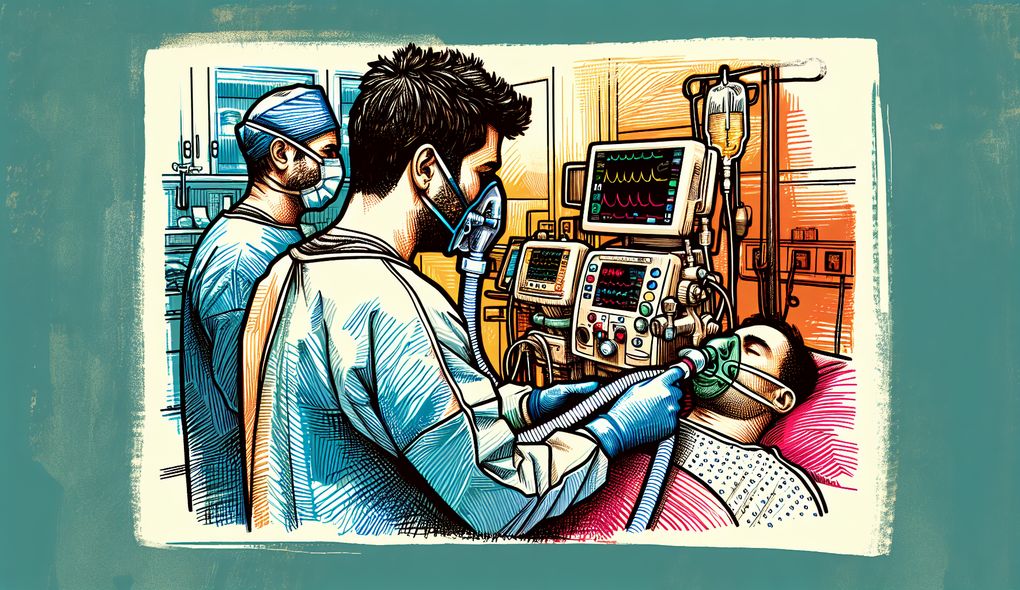How do you ensure accuracy and completeness in maintaining patient charts and documentation?
INTERMEDIATE LEVEL

Sample answer to the question:
To ensure accuracy and completeness in maintaining patient charts and documentation, I pay close attention to detail and follow established protocols. I carefully document all therapy and treatment outcomes, making sure to record any changes or updates. I also communicate effectively with the healthcare team to ensure that all relevant information is captured in the patient charts. Additionally, I stay up to date with the latest respiratory therapy practices through continuous education.
Here is a more solid answer:
Ensuring accuracy and completeness in maintaining patient charts and documentation is a crucial part of my role as a Respiratory Therapist. I employ my strong clinical skills in respiratory care to accurately assess and document patient progress and treatment outcomes. For example, when updating patient charts, I include detailed information about the therapy provided, the patient's vital signs, as well as any changes in their lung capacity or blood chemistry. To ensure completeness, I communicate effectively with the healthcare team, collaborating on the implementation of patient care plans and documenting any adjustments made. In addition, I am detail-oriented and use my problem-solving skills to identify and rectify any discrepancies or inconsistencies in the patient documentation. By staying up to date with the latest respiratory therapy practices through continuous education, I ensure that my charting practices align with the best clinical standards and guidelines.
Why is this a more solid answer?
The solid answer provides specific examples of how the candidate applies their clinical skills and problem-solving abilities to ensure accuracy and completeness in maintaining patient charts and documentation. It also highlights the importance of effective communication and continuous education in this aspect of their role. However, the answer can be further improved by incorporating more details or specific examples of the candidate's experience in accurately documenting therapy and treatment outcomes.
An example of a exceptional answer:
Maintaining accuracy and completeness in patient charts and documentation is of utmost importance in delivering quality respiratory therapy care. As a detail-oriented Respiratory Therapist, I meticulously document all aspects of patient care, ensuring that charts accurately reflect treatment outcomes, therapy provided, and vital signs. For example, I record the specific aerosol medications administered, the frequency and duration, as well as the patient's response to the treatment. To guarantee completeness, I proactively communicate with the healthcare team, participating in interdisciplinary rounds and providing updates on patient progress. In situations where discrepancies or inconsistencies arise in documentation, I use my problem-solving skills to investigate the root cause and rectify errors promptly. Additionally, I stay abreast of the latest advancements in respiratory therapy through continuous education, allowing me to incorporate evidence-based practices into my documentation processes. By upholding the highest standards of accuracy and completeness, I ensure that patient charts serve as reliable sources of information for fellow healthcare professionals and contribute to the overall continuity of care.
Why is this an exceptional answer?
The exceptional answer goes above and beyond by providing specific details and examples of how the candidate ensures accuracy and completeness in maintaining patient charts and documentation. It highlights the candidate's attention to detail, proactive communication, and problem-solving abilities in this aspect of their role. Additionally, it emphasizes the candidate's commitment to continuous education and their ability to incorporate evidence-based practices into their documentation processes. This answer demonstrates a comprehensive understanding of the importance of maintaining accurate and complete patient charts and the candidate's ability to excel in this area.
How to prepare for this question:
- Familiarize yourself with the standard protocols and guidelines for maintaining patient charts and documentation in respiratory therapy.
- Review your clinical skills in respiratory care and think about how they can be applied to ensure accuracy and completeness in patient charting.
- Think about specific examples or experiences where your attention to detail and problem-solving abilities were crucial in maintaining accurate and complete patient documentation.
- Reflect on the importance of effective communication with the healthcare team and how it contributes to accurate and complete patient charting.
- Stay updated with the latest advancements in respiratory therapy through continuous education and be prepared to discuss how you incorporate evidence-based practices into your documentation processes.
What are interviewers evaluating with this question?
- Clinical skills in respiratory care
- Detail-oriented and problem-solving skills

